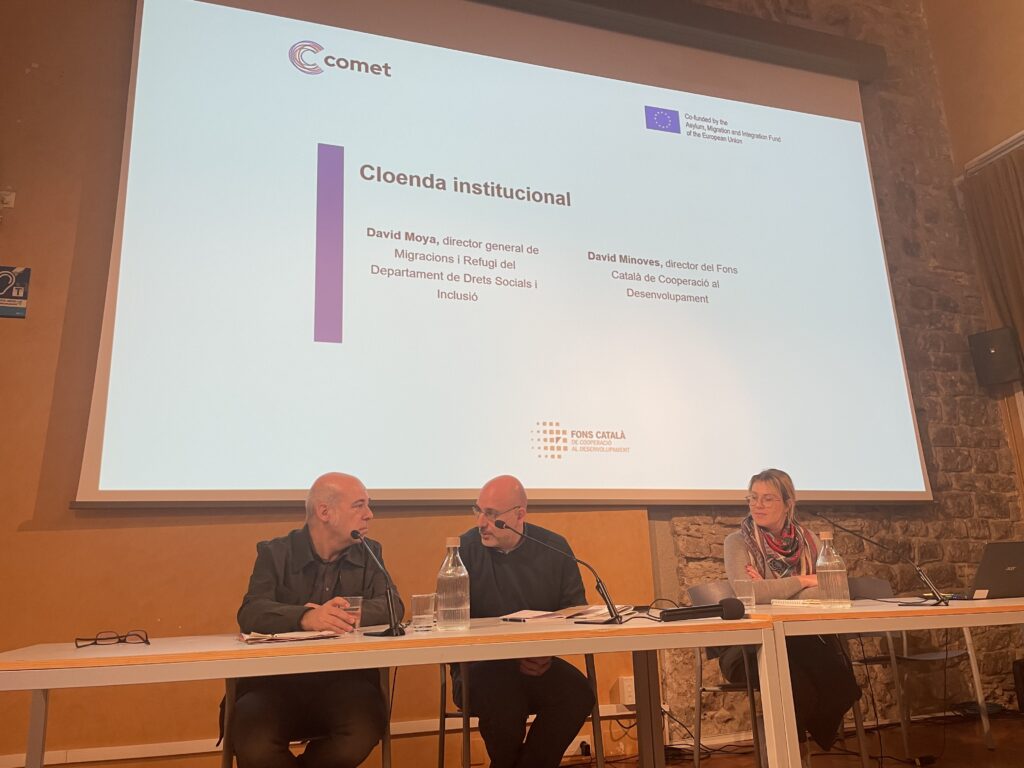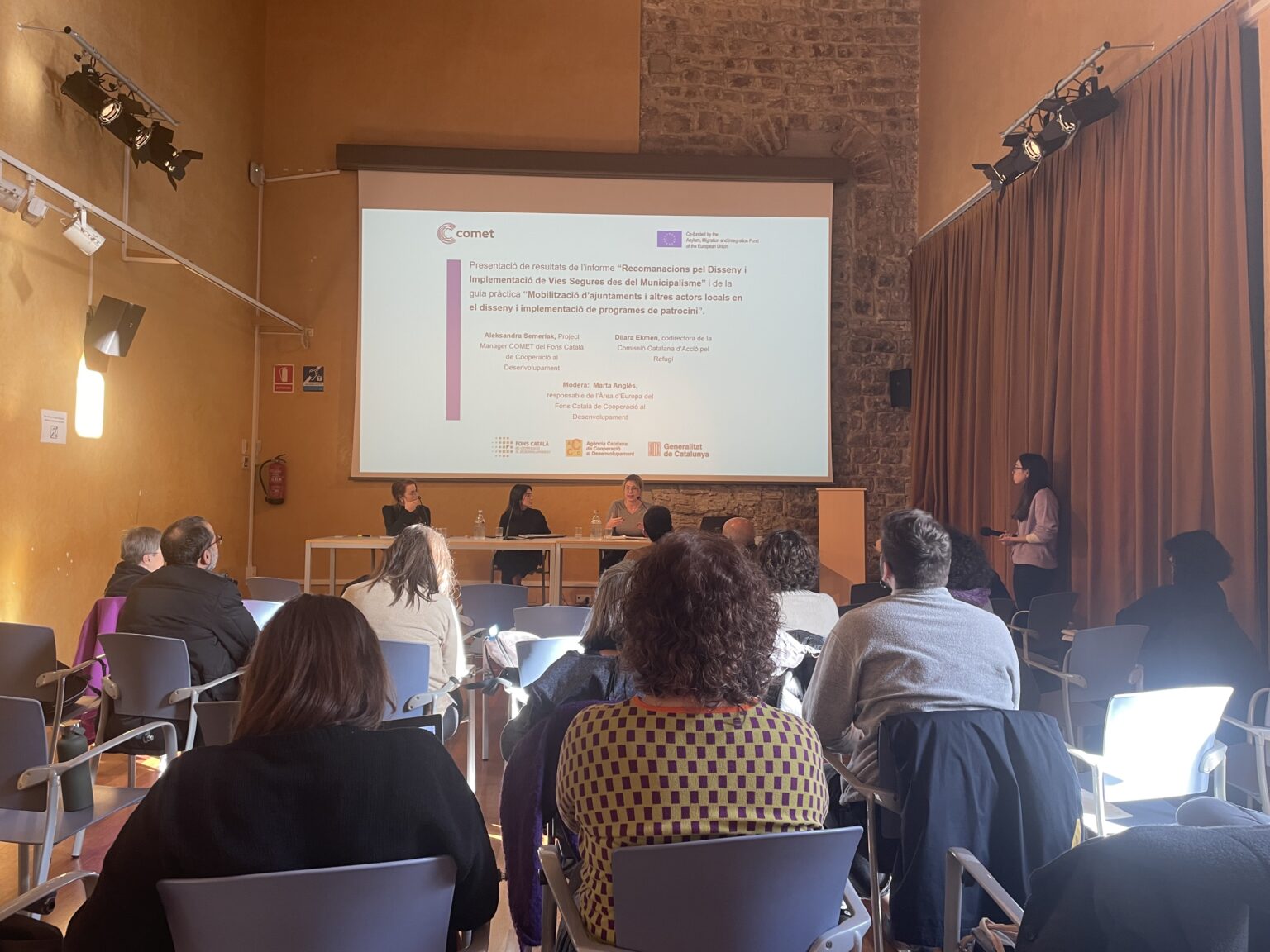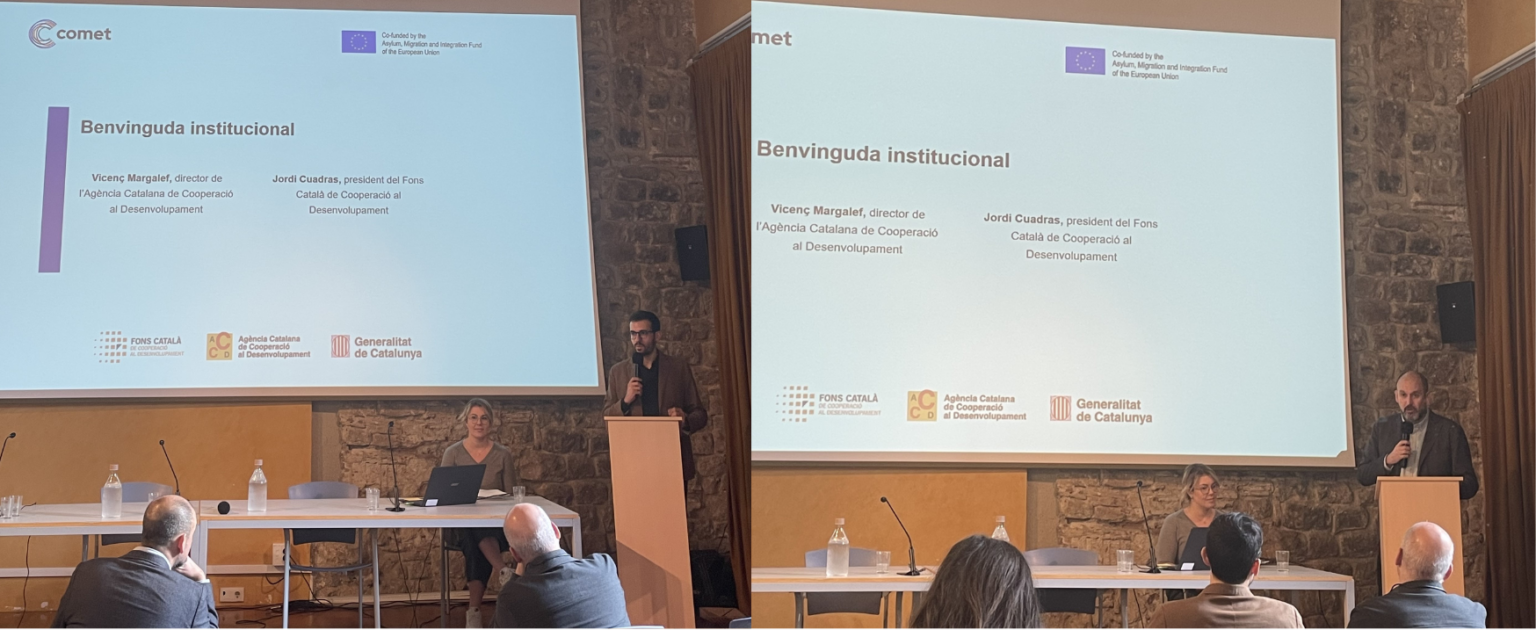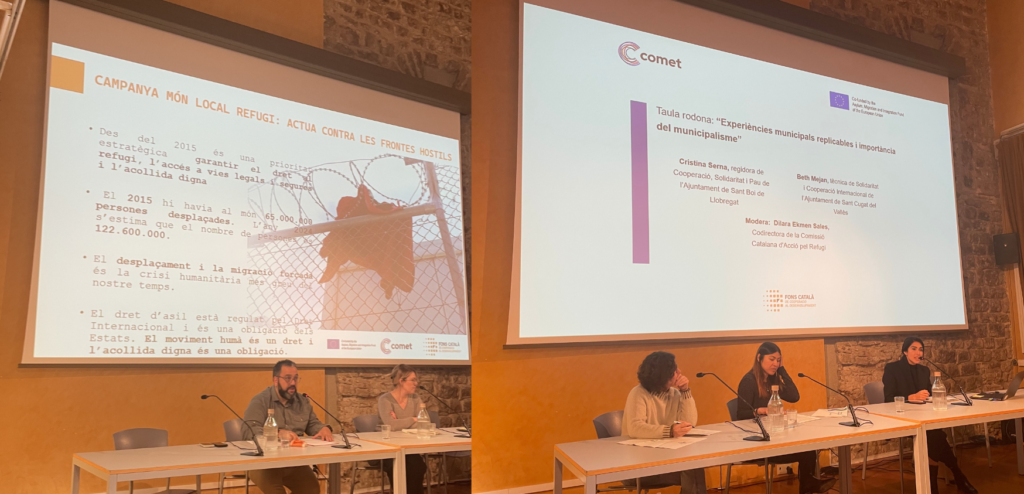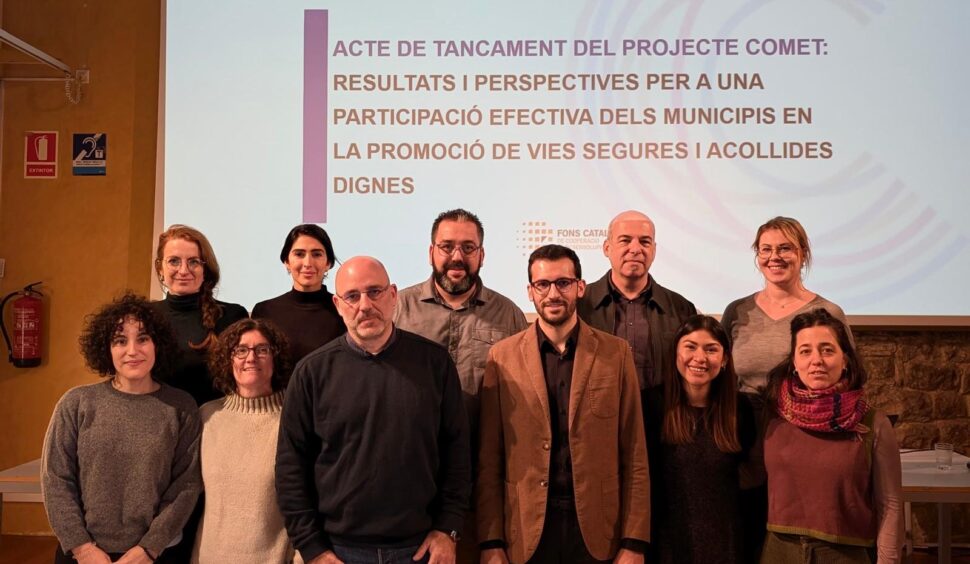 Fons Català concluded the project with the event “Results and perspectives for effective participation of municipalities in promoting safe pathways and dignified reception,” held on December 13th at the Pati Llimona Civic Center in Barcelona.
Fons Català concluded the project with the event “Results and perspectives for effective participation of municipalities in promoting safe pathways and dignified reception,” held on December 13th at the Pati Llimona Civic Center in Barcelona.
At the closing event of the COMET project, led by Fons Català as part of the Món Local Refugi campaign since 2022, the results and two documents developed in collaboration with the Comissió Catalana d’Acció pel Refugi (Catalan Commission for Refugee Action) were presented.
The president of Fons Català, Jordi Cuadras, welcomed the attendees by reminding them that COMET has been “an innovative and pioneering project carried out thanks to the collaborative effort of institutions and organizations, embodying values that we defend from the municipalist sphere.” One of the project’s goals was to raise awareness about the need for local government and other local actors to guarantee the right to international protection by promoting safe pathways and creating spaces for knowledge exchange on the challenges and opportunities in this field. The initiative was launched at a time when, as the president pointed out, “the defense of human rights, the right to asylum and international protection, and migration are a gap for the far right to gain support among the public and weaken democracies.”
Vicenç Margalef, director of the Comissió Catalana d’Acció pel Refugi (CCAR), agreed that “the right to migration must be defended from the origin by bringing together the local world” and emphasized the desire to “continue strengthening this alliance strategically, in the long term,” and bring it to an operational level. In this regard, the director of the ACCD also mentioned the European project, in collaboration with Fons Català, “Shababuna,” which aimed to combat misinformation about migration among youth in Morocco.
Recommendations on the design and implementation of safe pathways and municipalism
Aleksandra Semeriak, Project Manager of COMET, presented the two documents resulting from the project, together with Dilara Ekmen, co-director of the Catalan Commission for Refugee Action (CCAR):
- Report: Recommendations for the design and implementation of safe pathways from the municipal level (English version – Catalàn version)
- Practical Guide: Mobilizing municipalities and other local actors in the design and implementation of sponsorship programs (English version – Catalàn version).
Throughout the three years of the project, it was noted that there has been a lack of participation from municipalities in the definition of safe pathways at the European level, where local administrations have maintained a more complementary, external role. However, through these documents, the need for local governments and entities to be more involved in the design and implementation of these safe pathways programs is highlighted so that they can be carried out “in a co-responsible, transparent, equal, sustainable, and safe manner.”
The documents also compile and systematize best practices and pilot projects in other European countries, offering a joint reflection that guides future actions to be implemented on the ground. Among the conclusions, it is emphasized that reception should be part of the public and structural policies of municipalities, where “other private and multisectoral actors should also collaborate.” Semeriak argues that “municipalities are essential agents in reception,” but other parts of society are also “catalysts for global justice.”
Dilara Ekmen, co-director of CCAR, agreed that one of the main values of the documented work was obtaining “clear and precise information on how to structure these initiatives, and what processes, timelines, and resources they involve.” Politically, Ekmen highlighted that “we need to move forward in the right to asylum in Catalonia, both from host countries and transit countries,” and she emphasized the value of “existing local networks” or those that can be created “ad hoc” with all the involved agents.
From the COMET project, Semeriak emphasized that, although the sponsorship pathway has not been implemented in Catalonia, the project has provided tools and guidance for doing so when the legal and political framework allows.
These lines also stem from experiences in five European countries that have collaborated in the project. Specifically, cases such as the creation of pre-reception working groups in Germany, the existence of university corridors in France, and two pathways for managing the reception of vulnerable people through humanitarian corridors in Italy were shared, including a specific pathway for unaccompanied minors in the cities of Turin and Asti. At the national level, Dilara Ekmen also highlighted two complementary sponsorship programs implemented in Navarre and the Basque Country, as well as a labour mobility pathway with the Provincial Council of Valladolid.
The professionals also raised other challenges and identified potentialities for the implementation of safe reception pathways for people in need of international protection at the municipal level. On one hand, the negotiation moment for the European Pact on Migration and Asylum was highlighted, which could help reduce bureaucratic difficulties and increase the active participation of municipalities. On the other hand, the need for people who have experienced forced displacement to be involved in the design of these programs was emphasized.

